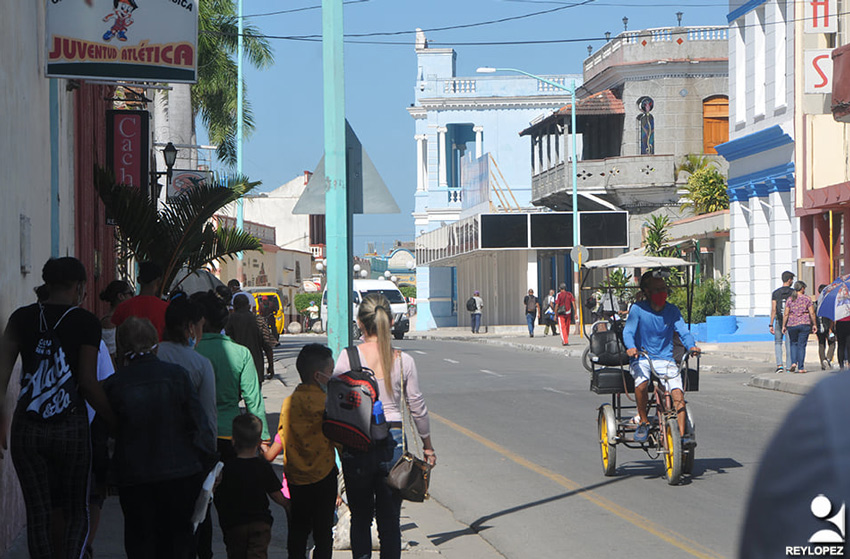
The rise in the number of infected people with the new SARS-CoV-2 coronavirus has complicated the epidemiological situation throughout Cuba; and although this province remains in the stage of new normality, there is an obvious rebound of cases in recent weeks, much higher than the figures that had been reported since the start of the pandemic.
Las Tunas, Cuba.- Faced with this panorama, the Temporary Working Group approved several measures for the municipalities of Las Tunas and Puerto Padre, which are the ones with the highest incidence in the territory, to avoid transmission of the disease and therefore the regression to previous phases.
"We have anticipated actions of the established protocols to prevent an epidemiological setback in the territory. The last 15 days -since December 29- have reported 64 positive cases," Dr. Guiuzel Cutiño Pavón, provincial deputy director of Public Health, explained.
In the first place, the mandatory use of the facemask was approved and greater control of hand disinfection with sodium hypochlorite at one percent or hydroalcoholic solution at 70 percent at the entrance of the institutions.
According to the new guidelines, the surveillance of Acute Respiratory Infections (ARI) and active inquiry are strengthened with the participation of mass organizations, community groups, as well as community doctors and nurses. The purpose is to detect potential sick people in a timely manner, diagnose and isolate them.
External consultations, whenever possible, will be rescheduled and interconnected with the communities. From now on, it will be identified as a violation of the International Health Control protocols if one or some contacts of the travelers do not inhabit the same address.
Until now, the activities of the school year are maintained from the strict compliance with the indications, which include the suspension of morning ceremonies, the staggered exits of the classroom for snacks and lunch, avoiding crowds. In the lines, the distance of one meter between each student must be respected.
Hospital centers suspend visits to those admitted and if the epidemiological situation worsens, changes of companion will not be allowed. Social institutions will not allow passes or visits from relatives either; the latter is also valid for penitentiaries. The daytime service will continue at grandparents’ homes and nursing homes, taking into account the evaluations of the authorities of these municipalities.
Prevention and health promotion actions are planned in workplaces to increase the perception of risk. Workers must know the procedure in case they visit areas of national risk or maintain contact with a traveler. The prohibition of working with respiratory symptoms continues and those who suffer from them have the obligation to go to the doctor immediately.
The maximum group of people that can enter the meeting rooms must also be defined, with a space of at least one meter between each of them. During the period, distance work will be encouraged according to the conditions and type of activity.
On the other hand, the swimming pools, both in the state and private sectors, bars, nightclubs, cinemas, theaters and concert halls are closed. Public activities and private parties are prohibited; violators will be fined and brought to court. Likewise, it is established that from 7:00 pm people will not be able to stay in parks, squares or other public places.
From March 2020 to date, Las Tunas reports more than 200 COVID-19 patients, with a significant increase in the autochthonous. These are times to take extreme measures because indiscipline and irresponsibility can put an end to the efforts aimed at preserve epidemiological stability.
The province confirmed four new positives to SARS-CoV-2 during the last 24 hours. The epidemic rebound that the territory is experiencing in the most recent days marks the municipalities of Puerto Padre and Las Tunas as those with the most complicated health situation. The health area of the Guillermo Tejas polyclinic, in the capital city, has the highest incidence rate.




